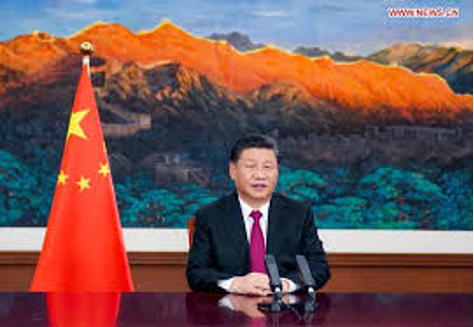Source: February 22,2024

In the city of Xiamen, east China’s Fujian Province, nature surprises visitors with its beauty: egrets dance on Yundang Lake, Gulangyu Island’s greenery contrasts with its red tiles, and the sea and sky blend seamlessly in Wuyuan Bay.
Chinese President Xi Jinping cherishes Xiamen deeply. From his post in the coastal city to leadership roles in Fujian and the central authorities, Xi’s ecological protection initiatives on Xiamen have yielded significant results.
As a key birthplace and early adopter of Xi’s ecological ideas, Xiamen has pursued systematic ecological governance and contributed to high-quality development through marine ecological restoration for over 30 years, fostering harmony between man and nature.
Xiamen has earned titles like International Garden City, United Nations Habitat Scroll of Honor award winner, and National Forest City, yet its beauty wasn’t always so apparent.
In 1985, the State Council expanded Xiamen’s Special Economic Zone. That summer, Xi took up the new post of member of the Standing Committee of the Communist Party of China Xiamen Municipal Committee and executive vice mayor of Xiamen.
At that time, Xiamen’s cityscape was antiquated. After some research, Xi gained a clear understanding of Xiamen’s ecological value, emphasizing that development should never come at the cost of the environment.
Yundang Lake, once a fishing port on Xiamen Island, was heavily polluted due to industrial and domestic sewage discharge, greatly affecting the lives of local residents.
Addressing the issue was a formidable and costly challenge for Xiamen, recalled 81-year-old Zhang Yihe, who has witnessed Yundang’s ecological transformation.
On March 30, 1988, Xi chaired a special meeting on cleaning up Yundang Lake. At the meeting, Xiamen established a leadership group overseeing the task, and allocated 10 million yuan (about 1.39 million U.S. dollars) annually from the city’s budget for two years.
“Ten million yuan was a significant investment. It was equivalent to one-tenth of Xiamen’s annual infrastructure expenditure at the time,” Zhang said, adding that it showed the resolve of the city authorities to treat the polluted lake.
Various measures were implemented. Industrial enterprises around the lake were all shut down and relocated, sewage plants were built, and seawater was channeled into the lake to revitalize the water body. In 1992, a dragon boat race was held on Yundang Lake, symbolizing the success of its transformation.
With a total investment of about 2 billion yuan over the past 30-plus years, Yundang Lake now features clear water and abundant aquatic life, serving as a scenic spot for residents and tourists alike.
After cleaning up Yundang Lake, the local authorities initiated a comprehensive ecological restoration effort to turn Xiamen into a beautiful and modern international city.
Junying Village, once among Xiamen’s poorest, suffered greatly from over-exploitation. During a 1986 visit to the village, Xi encouraged locals to grow tea and fruit while preventing soil erosion. Eleven years later, during another visit, he reiterated the need for afforestation and sustainable development.
Xi’s instructions helped improve the local ecology and the quality of the tea, boosting tourism and the livelihoods of residents. Today, Junying has become a popular tourist attraction.
During his posting in Xiamen, Xi spearheaded a 15-year development plan for the city, a section of which was dedicated to addressing environmental issues, with a sound ecology established as a strategic goal for Xiamen. This set a national precedent.
During his leadership posts in Fujian and the central authorities, Xi remained committed to Xiamen’s ecological development. His guidance has shaped its transformation into a city that balances economic development with environmental protection, and achieves harmony between man and nature.
With limited land and a dense population, Xiamen had long faced pressure on its environmental carrying capacity, especially on the Xiamen Island, which accommodates nearly half of the city’s population.
In 2002, Xi, then deputy Party chief and governor of Fujian, proposed the idea of shifting Xiamen’s urban planning from island-based to bay-based.
Since then, the city has undertaken a succession of comprehensive renovation and development projects in five bay areas, aiming to create a “beautiful blue bay” surrounding the city.
Aquaculture has been phased out and the sea restored in an area of 258,000 mu (about 172 square km), a move that has promoted the upgrading of traditional fisheries production.
Maluan Bay, one of the five bays, has been transformed from an area with densely distributed fish ponds to a new attraction frequented by tourists and locals, with a green coverage rate exceeding 50 percent and picturesque scenery.
Guided by Xi’s ideas, over the past 36 years, Xiamen has pioneered the concept of comprehensive bay-area governance in domestic coastal regions and invested a total of 105.6 billion yuan in marine ecological protection and restoration, aiming to construct a bay city where humans and nature coexist harmoniously.
In the meantime, the people of Xiamen have realized through practice that reform and innovation are powerful drivers for solving the problems of marine ecological protection and ecological civilization construction.
In 1994, after Xiamen obtained legislative power as a special economic zone, the first substantive local regulation enacted was on environmental protection. Subsequently, the city has promulgated more than 30 regulations and rules related to ecological and environmental construction, as well as resource protection.
With improvements to its ecology, Xiamen’s tourism sector has seen continued growth. In 2023, the city recorded nearly 110 million tourist visits, reaching a historic high. During this year’s Spring Festival holiday, tourism bookings in Xiamen saw a 65 percent increase on the previous year, with ticket bookings for tourist spots more than doubling.
“Clear waters and green mountains are not only natural and ecological wealth, but also social and economic wealth,” Xi once pointed out. And the concept that “lucid waters and lush mountains are invaluable assets” has become the consensus and action guide of the entire Party and society in China.
Cui Yonghui, Party chief of Xiamen, said that the city will resolutely implement Xi Jinping’s thought on ecological civilization and strive to build itself into a window to a beautiful China in the new era.
en.people.cn
 Africa -China Review Africa -China Cooperation and Transformation
Africa -China Review Africa -China Cooperation and Transformation
